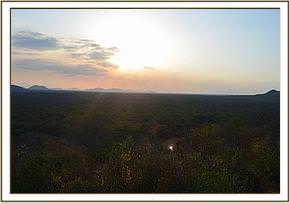With an ever-increasing herd of orphaned elephants being cared for by the David Sheldrick Wildlife Trust, the challenges faced in providing a safe future for all of them is of upmost concern, especially during such times when there is great pressure and conflict over viable elephant habitats, droughts are ever prevalent and ivory poaching is still a severe threat throughout the country
With an ever-increasing herd of orphaned elephants being cared for by the David Sheldrick Wildlife Trust, the challenges faced in providing a safe future for all of them is of upmost concern, especially during such times when there is great pressure and conflict over viable elephant habitats, droughts are ever prevalent and ivory poaching is still a severe threat throughout the country. The future is especially a worry for some of our elephant orphans who are physically less capable of coping with the harsh environments of Tsavo due to old injuries, which are all consequences of being orphaned due to factors related to human-wildlife conflict and poaching.
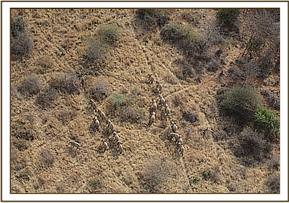

The Trust’s original relocation unit at Voi within the south-eastern section of Tsavo East is currently home to 19 dependent adolescent orphans who are finding their way back into the wild herds of Tsavo alongside 49 ex-orphans who have already achieved full-independence from the stockades. In northern Tsavo East there are another 28 milk-dependent orphans being cared for by the Ithumba team, who spend their days browsing through the wilderness meeting the other 31 Ithumba ex-orphans and the many other wild elephant herds that share their days. Back in Nairobi there are 29 orphaned elephants at the Nursery, making a total dependant orphaned herd numbering 76, whilst the DSWT must expect that more orphans will be rescued in the coming months and years.
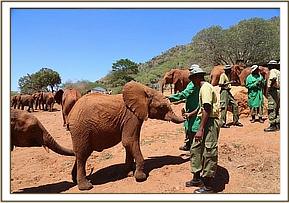

For these reasons the DSWT is making long-term plans in order to create a sustainable and safe future for all of the orphans where they will have the chance to return to a protected wilderness, which will also offer an easier environment for the less-mobile orphans in the care of the Trust. Part of this challenge is being addressed by the DSWT’s ambitious ‘Saving Habitats’ initiative, which involves leasing, managing and protecting large tracts of pristine wilderness in collaboration with the Kenya Forest Service, local communities and the KWS.
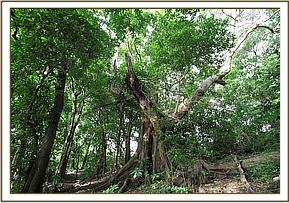

One such project which has been a great success over the past three years is within the Kibwezi Forest Reserve. It is within this ecosystem and close to the Chyulu Hills National Park Boundary where the DWST is about to complete a third small elephant relocation unit to enhance the capacity of the Trust’s current units. The reasons the DSWT has chosen the Kibwezi Forest as the most suitable location for this new unit is that it provides a safe haven with plenty of food and spring water and most importantly access to other wild elephants, a population which is now steadily growing. The Forest now has three boundaries electrically fenced (47 kilometres) yet continues to allow the elephant herds and wildlife free movement between the forest and the Chyulu Hills and beyond to Amboseli and Tsavo West.
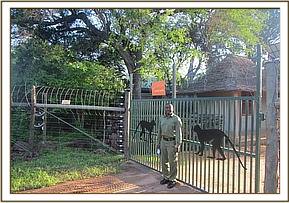

The orphans chosen to be relocated to the Kibwezi Unit will be those who are less suitable for the harsher conditions of northern Tsavo and who are more dependent on the Keepers due to various health issues, healed broken limbs and some more permanent injuries. They are all fit to live perfectly viable wild lives but in a favourable environment. Of course due to the intricacies of elephant emotion the DSWT will of course consider their friendships when making the decision to move the orphans.
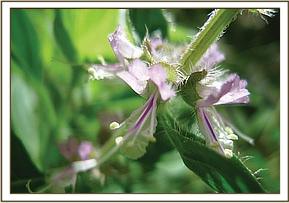

With all permissions in order and permits granted by both the Kenya Forest Service and the Kenya Wildlife Service, construction has commenced on the new unit with the erection of an electrical perimeter fence, which acts to provide security and protection from predators for the elephant orphans and the Keepers who will be accommodated during the night in the stockades. The stockade compound, which is situated deep within the Forest, close to the Umani Springs lodge and the groundwater springs, has been designed to accommodate up to 12 elephant orphans, whilst the perimeter fence-line allows wild elephants a safe degree of interaction with the orphaned elephants contained during evening hours.
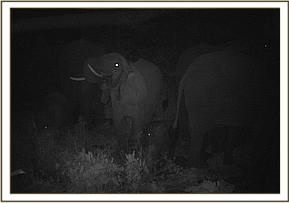

The stockades are still under construction as well as two rustic sleeping decks which are located inside of the perimeter fence for the elephant keepers, whilst the staff quarters for the stockades are accommodated in the Umani camp compound including the provision and milk store. The Trust is nearing the final phase of completion of the stockades at Kibwezi, which is expected to be completed in the coming 6 weeks, whilst plans are in line to translocate four of the Trust’s compromised elephant orphans from Nairobi to the stockades in May this year.
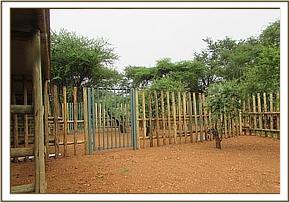
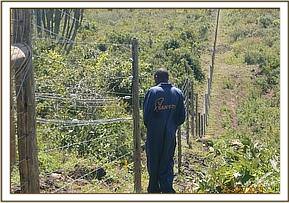
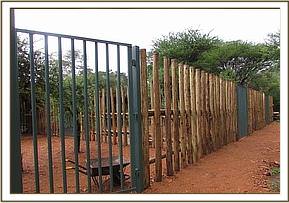

Timing is important for any elephant move, taking into consideration the arrival of the rains, which are due in April. Once the rains have subsided and the environment has flourished and dried-off, it is the perfect time for the translocated elephants to be gently introduced into their new home, a Garden of Eden where recently the wild herds have chosen to give birth to some wild born babies- we know this as our ground teams have found elephant afterbirth close by.
